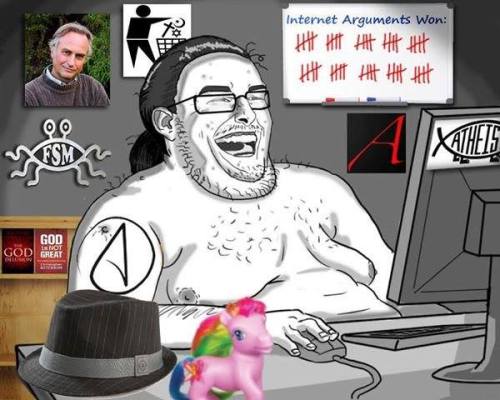AllIsOneIsNone
Banned
It's all semantics, in my opinion. If I were to say God exists, I would personally say that God is simply everything, or the Universe throughout all time. Is the Universe sentient? Maybe. Omniscient? Omniscience (all knowing) could simply mean that all knowledge is contained within the Universe. Omnipotence (all powerful) could just mean that anything that is possible is possible. Redundant? Yes. But the Universe itself having all the power in the Universe makes sense. Omnibenevolence is a tough one, but I would say existence is the opposite of non-existence, and that alone could be considered the greatest good considering life doesn't want to not exist.
My point is that people throw around the word God too damn much. OP is flawed just like the faith he so easily dismisses because it doesn't get beyond limitations of language, much less beyond the limitations of finding primary causes and ultimate origin. Guess what, nobody can get beyond these things. An argument only alludes to something, the proof of anything is itself and nothing else. So in that sense I could take the easy way out and say nothing you write or say could ever prove anything beyond your scientific tests that encompass a grain of sand in an entire desert. Logical Soundness is as close as you can get, but it's still a mirage filled with real world exception, no matter how nicely the words appear to follow.
In other words, your argument is hypocritical, much like those of many other athiests/theists.
My point is that people throw around the word God too damn much. OP is flawed just like the faith he so easily dismisses because it doesn't get beyond limitations of language, much less beyond the limitations of finding primary causes and ultimate origin. Guess what, nobody can get beyond these things. An argument only alludes to something, the proof of anything is itself and nothing else. So in that sense I could take the easy way out and say nothing you write or say could ever prove anything beyond your scientific tests that encompass a grain of sand in an entire desert. Logical Soundness is as close as you can get, but it's still a mirage filled with real world exception, no matter how nicely the words appear to follow.
In other words, your argument is hypocritical, much like those of many other athiests/theists.


